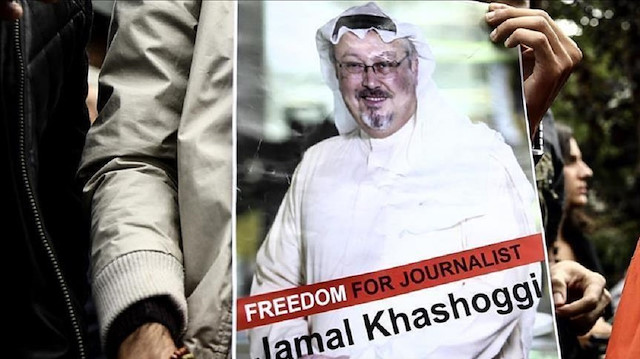
Killing of Saudi journalist in Istanbul has revealed pattern of 'lawless behavior,' says Human Rights Watch
The killing last October of a Saudi journalist in Istanbul is putting other “abuses” by Saudi Arabia in the spotlight, according to a new report by Human Rights Watch.
The World Report 2019 by the New York-based group details attacks in Yemen by a Saudi-led coalition that it said may amount to war crimes as well as repression of dissidents and human rights activists at home.
“The [Jamal] Khashoggi murder has not only wrecked Crown Prince Mohammad bin Salman’s reputation but has exposed a pattern of lawless behavior by Saudi leadership,” said Michael Page, HRW’s deputy Middle East and North Africa director.
“If Saudi Arabia has any hope of rehabilitating its tattered image, the authorities should immediately release everyone they’ve locked away merely for their peaceful criticism," he added.
Saudi Arabia has committed numerous violations of international humanitarian law as the leader of a coalition taking part in military operations against the Houthis in Yemen, said the report, citing the attack on a wedding last April that killed 22 and wounded more than 50.
Since 2015, Saudi Arabia and several of its Arab allies have waged a massive military campaign against Yemen’s Houthi rebel group, which overran much of the country a year earlier.
The conflict has destroyed much of Yemen’s basic infrastructure, including water and sanitation systems, prompting the UN to describe the situation as one of “the worst humanitarian disasters of modern times.”
Khashoggi, a contributor to The Washington Post, went missing after entering the Saudi Consulate in Istanbul on Oct. 2.
After producing various contradictory explanations, Riyadh acknowledged that he was killed inside the consulate building, blaming the act on a botched rendition operation.
Turkey has sought the extradition of the Saudi citizens involved in the killing as well as a fuller accounting of the killing from Riyadh.


